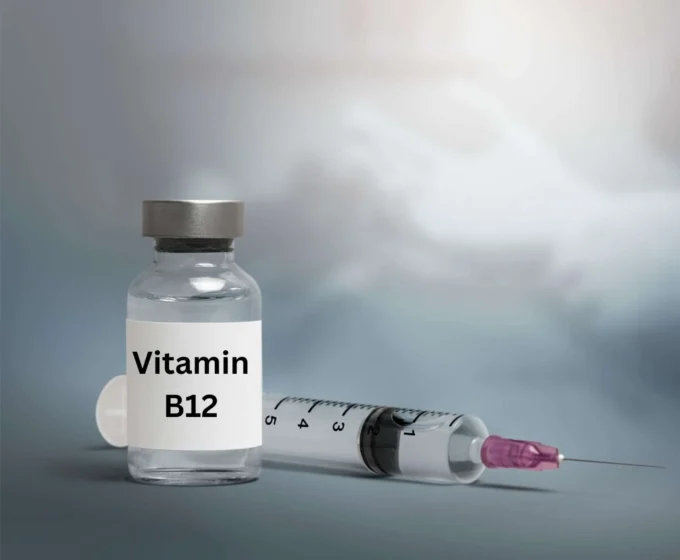Vitamin B12 injections are gaining attention for their significant health benefits, especially among those facing dietary deficiencies or specific health conditions. In 2025, understanding the relevance and regulations surrounding these injections in the UK is more important than ever.
This guide aims to provide comprehensive insights into the world of B12 injections, addressing common questions and concerns. It is designed for a wide range of readers, from those considering this medicine for health reasons to those simply curious about their benefits and usage. Our goal is to demystify the subject, making this complex information accessible and useful for everyone.
What is Vitamin B12?

Source: spineandorthopediccenter.com
Vitamin B12 is a water-soluble vitamin that is crucial for the proper functioning of the brain, nerves, and blood cells. It plays a pivotal role in DNA synthesis and red blood cell formation. Its deficiency can lead to significant health issues, including anemia, neurological disorders, and mental impairment. Adequate levels of B12 are essential for maintaining energy levels, cognitive health, and overall bodily function. In the human body, B12 is absorbed from food through the digestive system, but certain conditions can impair this process, necessitating supplemental forms like injections. Understanding B12’s role is the first step in recognizing the importance of maintaining its levels within the body.
Benefits of B12 Injections
B12 injections are known for their immediate and impactful benefits, particularly for individuals with diagnosed deficiencies. These injections bypass the digestive system, making them highly effective for those who have absorption issues. Benefits include increased energy levels, enhanced mood, and improved cognitive function. They are particularly beneficial for people suffering from conditions like Chronic Fatigue Syndrome, where B12 plays a role in energy production at the cellular level. Real-life examples include patients with pernicious anemia who experience significant improvement in energy and mood after receiving this medicine. These examples highlight the transformative potential of B12 injections, making them a crucial treatment option for many and the prime reason why you should buy Vitamin B12 Injections Online UK.
B12 Deficiency Signs and Symptoms

Source: health.com
Recognizing the signs and symptoms of B12 deficiency is critical for timely intervention. Common indicators include fatigue, weakness, constipation, loss of appetite, and weight loss. Neurological changes such as numbness and tingling in the hands and feet, difficulty maintaining balance, depression, confusion, and poor memory are also signs of a deficiency. Since these symptoms can be subtle and often attributed to other causes, it’s important to be vigilant. Early detection and treatment are key to preventing long-term health complications. Understanding these symptoms helps in recognizing when to seek medical advice, which can lead to a timely diagnosis and effective treatment plan.
Getting B12 from Food
Dietary sources of vitamin B12 are predominantly found in animal products. Foods rich in B12 include meat, fish, poultry, eggs, and dairy products. For vegetarians or vegans, fortified foods like plant-based milk, breakfast cereals, and nutritional yeast are good options. However, for some individuals, dietary sources may not be sufficient due to various reasons like dietary restrictions or absorption issues. In such cases, supplements or injections become necessary. It is important to emphasize that while a balanced diet is key to maintaining adequate vitamin levels, some individuals may still require additional forms of the vitamin for optimal health.
Who May Need B12 Injections?

Source: credihealth.com
Certain groups are at a higher risk of B12 deficiency and may need injections. These include older adults, as absorption decreases with age; people with gastrointestinal disorders like Crohn’s disease or celiac disease, which impair absorption; vegetarians and vegans, who may not get enough vitamin from their diet; and individuals who have had gastrointestinal surgeries, such as gastric bypass. These injections are also critical for those with pernicious anemia, a condition where the body cannot absorb B12 from food. Understanding who might need this medicine is essential for targeting interventions and ensuring that those at risk receive appropriate care.
B12 Injections in the UK
In the UK in 2025, the regulations and availability of B12 injections have evolved. These injections are typically administered by healthcare professionals, and their classification as prescription-only or over-the-counter varies based on current health regulations. It’s crucial for individuals seeking B12 injections to be aware of the latest guidelines and protocols. This includes understanding whether a prescription is required and what the process entails. The accessibility of these injections plays a significant role in addressing public health concerns related to vitamin deficiency, and staying informed about the latest developments is essential.
Obtaining a Prescription
To obtain a prescription for this medicine in the UK, a consultation with a healthcare professional is necessary. This process usually involves a blood test to determine B12 levels and assess the need for injections. If a deficiency is diagnosed, the healthcare professional will prescribe the appropriate dosage and schedule for the injections. The process may also involve discussing potential causes of the deficiency and exploring dietary or lifestyle changes that could help. It’s important for patients to have open and informed discussions with their healthcare providers to ensure a comprehensive approach to treatment.
Over-the-Counter Options
As of 2025, over-the-counter B12 injection options may be available in the UK, subject to current regulations. These options provide an alternative for individuals who prefer self-administration or have milder deficiencies. However, it’s important to be aware of any restrictions or guidelines for self-administration, including proper dosing and injection techniques. Individuals considering over-the-counter B12 injections should still consult a healthcare professional to ensure it’s the right choice for their health needs and to understand the proper usage.
Safety and Side Effects
B12 injections are generally considered safe, but like any medical treatment, they can have side effects. Common side effects include pain at the injection site, mild diarrhea, itching, or swelling. More serious but rare side effects can include allergic reactions. It’s important for individuals to be aware of these potential side effects and to monitor their response to the injections. Consulting a healthcare professional if any adverse reactions occur is crucial for ensuring safety and appropriate care.
Alternatives to Injections

Source: acko.com
For those who cannot or prefer not to use B12 injections, there are alternatives. Oral supplements are a common choice and can be effective, especially for mild deficiencies. Additionally, dietary changes to include more B12-rich foods can help maintain adequate levels. However, for individuals with absorption issues, injections may still be the most effective method. Discussing these options with a healthcare professional is important to find the best solution for each individual’s needs.
Conclusion
This guide has explored the key aspects of this medicine in the UK in 2025. From understanding what vitamin B12 is and its importance to discussing the regulations, prescription process, and safety concerns, we have covered the essential information. It’s important to remember that individual health needs vary, and consulting with a healthcare professional is crucial for making informed decisions about B12 injections. By staying informed and proactive about our health, we can ensure the best outcomes for our well-being.







